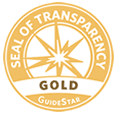First off, we want to make sure you know you know you are not alone. What you are feeling is felt by many other Veterans, and that is why we want to encourage you during this time. It may be helpful to have a buddy system in place during this time of year so that you can look after one another when holiday stress really hits.
Here are some tips to help you cope with this holiday season.
- Holidays are a time for family, whether that is blood relatives or close friends, try to spend as much time with them as you are comfortable with to make the most out of the holidays. If you have children, this is an excellent opportunity to share the spirit of giving and teach them about gratitude.
- If you are feeling too overwhelmed, remember that it’s okay to take time for yourself and step away from any situation if needed. Holidays can often bring up lots of emotions, especially for Veterans. If you are feeling anxious or overwhelmed, know that there is no need to completely isolate yourself – reach out and talk about it with someone who knows what you’ve been through so they can better understand where you’re coming from.
- Seek out others going through similar experiences using online communities or social media groups. Knowing that we all go through different experiences, which might not be the same, sometimes the feelings experienced can be similar to someone else’s. Relating to someone else can be incredibly helpful for understanding our own situations.
- Help your loved ones understand what you are going through by sharing a bit of how you are feeling. While this might feel vulnerable, it can help them understand why you might need to walk away from a situation or environment without question. This will also help them to know how they can best support you.
- If being around large groups of people is too overwhelming, try limiting the events you attend to just immediate family members or close friends instead of attending larger get-togethers. Holidays are often spent at parties or with family, but if you feel the most anxiety during this time, it might be best to spend your time in a smaller group setting.
- No matter what, be sure to take care of yourself. Holidays can bring up difficult memories for Veterans and you should practice some form of self-care while trying not to let PTSD ruin your holiday experience.
While it may be challenging at first, try spending time outside in nature as much as possible instead of being stuck inside all day long where there might just be more triggers than ever before! Exercise has been shown to help decrease stress, so try to get outside and exercise.
The Holidays can also be a reminder of the past. This is where it might help to talk about your experience with someone trained in how to work through PTSD. Holidays are a busy time of year, a lot is going on, and it can seem a bit chaotic. Stress can cause some problems in relationships which could potentially lead to conflict if not dealt with correctly. Holidays can bring out the best in people, but they can also bring out the worst due to tension and stress. They can be a time for celebrating, but they can also bring up painful memories as well. Holidays are an important part of our culture, so it is challenging to avoid them entirely, but we can get through them together with the right strategies in place.
Many Veterans feel the same tension and uncomfortably that you might be feeling. In fact, according to the Purple Heart Foundation, the holidays are associated with an increase in suicide rates for Veterans in comparison to civilians. Holidays can serve as reminders of painful memories, and many Veterans simply do not know what to expect when the holiday season comes around. This time of year, can bring a sense of loneliness, isolation, and guilt. Holidays can be difficult for family members as well because they have to cope with the changes that happen in their loved one who is struggling from PTSD. Therefore, open communication is key to continuing strong relationships with loved ones.
The holidays are typically associated with families gathering together, decorated trees, “jolly” music, and twinkling lights but some Veterans do not experience the same joy from the festive atmosphere. The average person does not understand what it feels like to live with anxiety each day or how events such as Holidays make you feel which only increases feelings of alienation and sadness. It is important to remember however that your reaction during a holiday season may seem out-of-the-ordinary compared to others around you, but it is nothing to be ashamed of.
As a Veteran, you have spent countless hours, days, weeks, and years fighting for your country. You deserve to celebrate the holidays just as much as anyone else does, so try not to let PTSD take that away. It is important to remember that everyone handles things differently so it would be unfair to expect all Veterans with PTSD to cope in one particular way or feel a specific emotion during the Holidays.
Professional help is available, but most people have a hard time asking for it especially men who are taught to be strong on their own, it’s essential to reach out for help. The Veterans Crisis Line provides free confidential support 24 hours a day, 7 days a week, 365 days a year. If you ever feel like you are in a crisis, whether you are thinking about taking your own life or not, the Crisis Line is available in multiple ways. You can call them at 800-273-8225 Press 1, you can also utilize their online chat available at https://www.veteranscrisisline.net/get-help/chat or you can text them at 832255.





